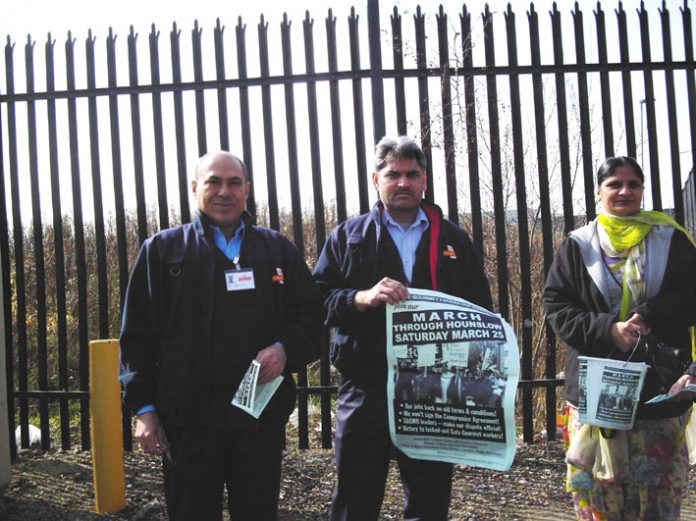
British Airways announced yesterday it has drawn up ‘a proposal to clear the £1 billion past service actuarial deficit in its New Airways Pension Scheme (NAPS)’.
BA said it plans to keep a final salary pension scheme with no changes to pension benefits already earned and no increase in staff contribution rates but at the cost of putting up the retirement age to 65.
The airline said: ‘Normal retirement age (NRA) will rise to 65 to coincide with age legislation, expected to be introduced in the UK in October 2006.
‘The current compulsory retirement age for pilots and cabin crew is 55; the normal retirement age is also 55. For cabin crew NRA will rise to 65. To reduce the impact, for the first five years this will rise to 60.
‘For pilots some countries, including France, and the USA apply restrictions to flying and overflying as a captain beyond 60. For this reason the normal retirement age will rise to 60.
‘If the flying restrictions are removed in the future, the airline will raise NRA to 65 and adjust accrual and contributions in line with other staff.’
BA added: ‘The key changes for future service are:– Normal retirement age raised; slower accrual rate; pensionable pay increases no more than inflation; pension increases on retirement capped at 2.5 per cent each year; and company and staff to share impact of changes in life expectancy.
‘The airline will make a payment of £500 million into NAPS after the changes are accepted.’
The Transport and General Workers Union (TGWU), with over 20,000 cabin crew and ground staff members at BA, pledged to resist the changes in pension benefits.
TGWU national secretary for civil aviation Brendan Gold said yesterday: ‘The proposal as presented to the T&G today is both unfair and unacceptable and does not represent a starting point for negotiations.
‘BA is a profitable company not one in crisis. It must be remembered the pensions are deferred earnings.
‘By capping increases in pensionable pay to RPI for accrued service, the company is proposing to take away benefits that have already been earned and paid for.
‘This may be legal but is morally wrong. This change alone has the effect of reducing existing pension pots by £13,300 on average.
‘The company’s examples being presented to the workforce totally ignore the impact of this proposed change and are therefore grossly misleading.
‘The T&G is determined to fight to protect our members’ pensions.’
The British Airline Pilots’ Association (BALPA) said it was pleased that BA accepted it was responsible for the deficit within its pension scheme and that the proposals it has put forward are open to discussion.
However, the union warned it is worried that the proposed Retail Price Index (RPI) cap on future pensionable pay increases will have an impact on its members’ accrued benefits, as well as future service, and that there are no proposals for improvements to pension arrangements of recent and future BA pilot recruits.
The union is also concerned that there is ‘little room for individuals to make a choice on when they retire on a full pension’.
Jim McAuslan, General Secretary of BALPA said: ‘We will be looking very closely at what BA have proposed today.
‘Over the next few weeks we’ll be meeting with members to share the findings and discuss our next steps.’
• Second news story
14,000 NIPSA MEMBERS READY TO STRIKE
The north of Ireland’s largest trade union NIPSA confirmed yesterday that its 14,000 plus members in District Councils, Education and Library Boards, the Housing Executive and other public bodies all across the north will be joining the strike action next Tuesday (28 March 2006) as part of a UK wide strike over pension rights.
NIPSA said: ‘The strike on 28 March, which will involve over a million workers in total, has the potential to cause disruption to public services on a scale not seen nationally since the General Strike of 1926.
‘Trade unions representing Local Government workers across the UK are strongly opposing changes to the pension scheme which would remove the existing rights of staff to retire at age 60 with full payment of pension.’
NIPSA General Secretary John Corey said members’ anger was reflected in the ballot result.
He added: ‘With the massive changes being planned for public services in Northern Ireland under the Review of Public Administration we cannot afford to have any group of public servants with far less favourable protection of their pension rights.’
71.5 per cent of NIPSA members who returned their voting papers voted for strike action in the statutory strike ballot.